Sowing the seeds of progress for Singapore’s national precision medicine programme
In Singapore, exciting developments are underway in the field of precision medicine. Dr Zheng Weiling, Senior Business Development Lead at Precision Health Research, Singapore (PRECISE), is one of those leading the charge.
Her work is aimed at transforming the way health is approached in Singapore by utilising the tenets of Precision Medicine, which takes into account individual variations in genetics, environmental and lifestyle factors.
The result is a move away from the traditional “one-size-fits-all” approach to medication and treatment, allowing doctors to more accurately predict which prevention strategies and treatments will work for different groups of people.
Weiling’s work involves showcasing the latest developments in Singapore’s precision medicine landscape and building partnerships with the industry. These partnerships with industry encourage overseas companies to set up operations in Singapore, and can also help local companies acquire new capabilities and grow their businesses.
Read on to find out what she finds fulfilling about her role at PRECISE to better healthcare outcomes for the population.
“Just show up, soldier on every day and once in a while, we get a breakthrough.”
Weiling first heard this mantra from former President of the United States, Barack Obama at a genomics forum held last year. She was representing Singapore to speak on a separate panel alongside esteemed leaders representing national genomics programmes from around the world.
“What he said resonated with me strongly because I want the work I do to create impact and contribute towards creating a more equal, healthier and better world,” says Weiling.
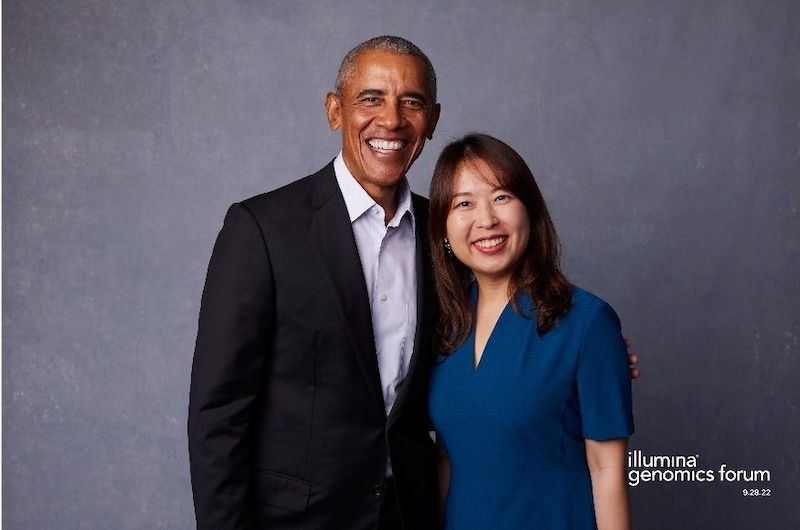
In Singapore, much research is ongoing to build a case that precision medicine can improve population health using a data-driven approach to take into account genomics, lifestyle, health and environmental data to predict health outcomes which can help doctors to optimise disease prevention and treatment strategies.
With a multi-ethnic population and strong research capabilities, Singapore is well-positioned to capture the diversity of Asia’s genomes and build new knowledge about Asian-specific genetic conditions. In 2020, PRECISE was established to coordinate this whole-of-government effort to drive Singapore’s National Precision Medicine Strategy.
Similarly, countries around the world such as US, UK and Switzerland have also initiated their own national genomics programmes. Most of these programmes, however, are focused on Western or European populations. Asians—who make up 60% of the world population — are under-represented in these databases.
Therefore, PRECISE has been working with partners in the ecosystem to generate Asia’s most deeply characterised population cohort linked to clinical outcomes. An example of this would be the SG100K study, the most comprehensive phenotyped longitudinal multi-ethnic Asian population cohort study, which is the cornerstone of Phase II of Singapore’s National Precision Medicine strategy.
Prior to joining PRECISE, Weiling was also in the precision medicine industry, working at a start-up supporting its sales and marketing functions. That early stint gave her perspectives on how her current work can create impact on a larger scale.
“Working in the start-up made me realise that turning precision medicine into reality is not going to be solved through a single company or technology, but it requires us to look at the system as a whole, identify the different components: research, education, healthcare government and industry to collaborate, and of course a lot of public engagement to advance precision medicine,” Weiling says.
Creating win-win-win solutions: the end-to-end support to drive precision medicine in Singapore
When asked to describe her area of work, Weiling smiles and says: “A common saying in business negotiations is to strive for ‘win-win solutions’, but for our work at PRECISE, it is about creating win-win-win scenarios. For this to happen, we need a good understanding of industry trends and specific needs for the companies we are working with. Yes, they may have different goals, but we strive to help them see the big picture or the larger goal of the ripple effects and impact we can bring to the ecosystem when we work together.”
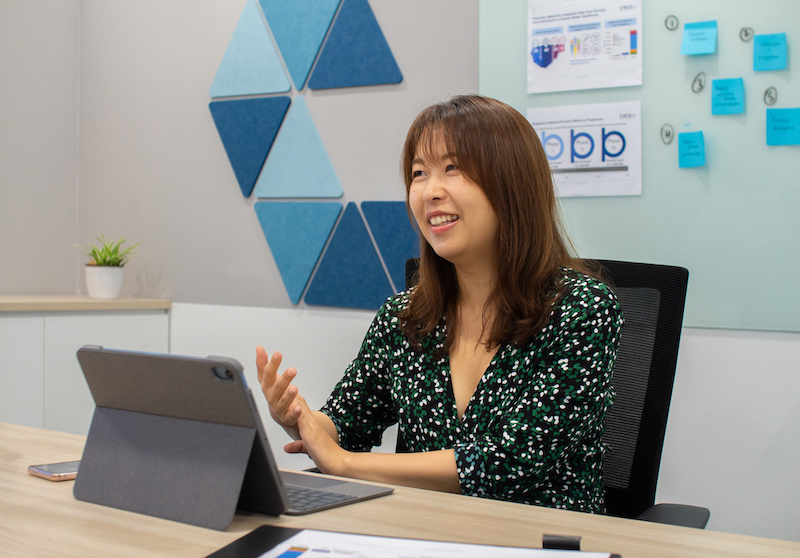
A key illustration of this intricate triple-win outcome is a three-year public-private partnership between PRECISE and Illumina, a leader in genomics technology, to sequence and analyse 100,000 Singaporean whole genomes which was announced on 26 May 2022. The event marked an important milestone towards creating the largest population genomic database in Southeast Asia, built on top of the SG100K study.
This partnership will bring a boost to Singapore’s national precision medicine strategy with high-quality genomic data generated at accelerated speed. Local sequencing companies in Singapore will also benefit from this collaboration, through training and certification in the usage of Illumina’s proprietary platforms; allowing them to access new markets in the region and internationally.
“It is rewarding to see the outcomes of our work – how we get foreign companies to establish or extend their presence in Singapore and help local companies to acquire new capabilities and grow their businesses here,” she says.
Studies such as these are among the first of their kind in Asian populations, and have the potential to improve population health and enhance Singapore’s strategies for preventive care. For example, an earlier multi-institutional study which mapped the genomic database of 10,000 Singaporeans yielded insights into genetic variations which predisposed people of different ethnicities in Singapore to certain medical conditions such as high cholesterol, due to a genetic condition known as familial hypercholesterolemia, and adverse drug responses to anti-epileptic medications and chemotherapy.
“Illumina has strong capabilities in large-scale genomic sequencing, with high quality data generated based on international best practices. We started engagement with Illumina fairly early to facilitate knowledge transfer and technology evaluation during the planning for Phase II of the programme,” says Weiling.
When the project entered Phase II, Weiling went through every detail to develop the partnership scope, obtain endorsement and approvals from all stakeholders involved and also negotiate the agreement, which she recalls was “over 150 pages”.
The partnership is ongoing and Weiling continues to support all stakeholders in this partnership. Further developments include ongoing PRECISE-Illumina collaborations on enterprise-grade data exchange platforms for the secure handling and sharing of anonymised biospecimen data for sequencing, and the development of AI approaches for genomics analysis.
“If I’d use a phrase to describe what I do, perhaps I’d call it “包山包海”, which aptly describes the end-to-end support to drive precision health research and power the local ecosystem,” she shares with a laugh. The phrase is a common Hokkien term which translates to mean “covering the mountain and the sea”.
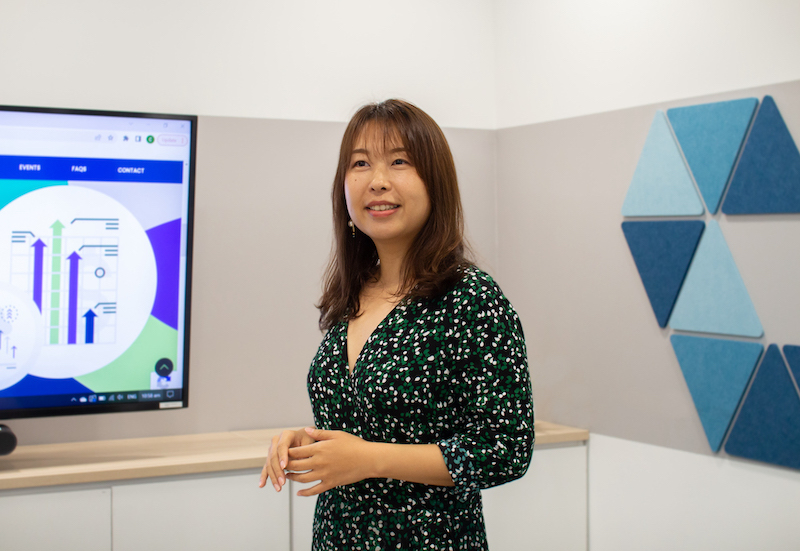
Not just a business letter, but an opportunity for a better world
There have been many rewarding moments in her role of building long-term partnerships within the industry and seeing things through from end-to-end.
One example would be through organising workshops where the key objectives would be to showcase the latest developments of the precision medicine landscape in Singapore and present strategies that will encourage companies to establish collaborations. Active engagement of partners at these meetings is one of the many functions of her dynamic role.
A recent incident shines bright in her memory at one of these workshops, which was attended by key industry leaders from abroad, as well as precision medicine researchers here.
“I recalled it was a Friday evening about two weeks after one of these workshops I had organised. My mailbox pinged and I received an unusual Letter of Intent from one of the industry representatives. It was unexpected because it usually takes a while for companies to mull over partnerships and strategies,” she shares.
A Letter of Intent, or LOI, is a formal letter which signifies that the counterpart is ready to enter the next stage of negotiation, Weiling explains.
“What took me by surprise was that this letter was written with sincerity and appreciation for the amount and quality of work put into the workshop by the PRECISE team and our ecosystem partners. It was a great way to wrap up the week,” Weiling beams.
Bridge between science and business
Her training in the biological sciences has defintely aided her to thrive in this role for four years and counting.
“I am glad I ventured beyond the lab into a people-facing job. Precision medicine involves everyone from the government administrators, to those in the biotech, medtech and digital health space, to investors and entrepreneurs. My scientific background allows me to capture the discussion by our scientists and researchers and be the bridge between science and business.” she says.
However, she shares that the transition from PhD researcher to business developer was also “not entirely a smooth journey”. Back then, companies were more willing to “hire you for a role that you have been doing”, and that more support for researchers leaving the bench to look to explore other roles in the ecosystem would have been helpful. She adds on that there are definitely more opportunities for today, such as career coaching and networking opportunities. There are also more options beyond a one-way career path and more flexibility to apply the scientific knowledge and skills gained in other roles across the industry.
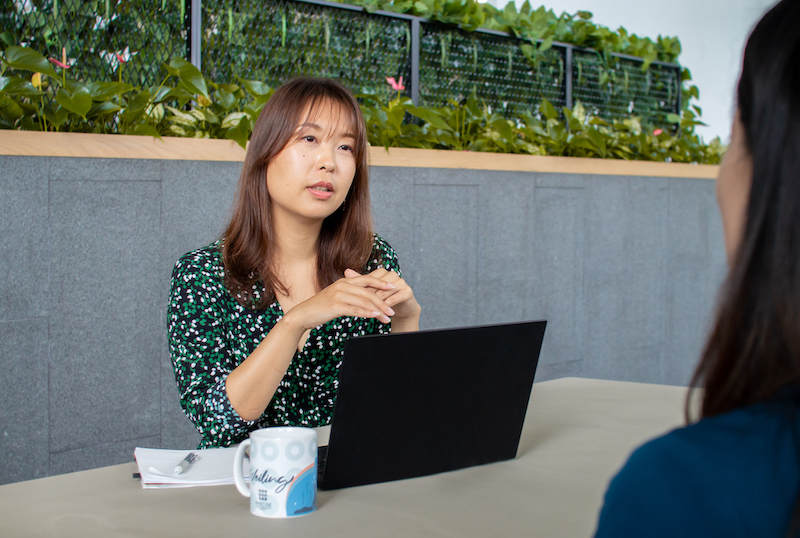
When asked what advice she has for young women interested in a career in science, she says: “Be brave to go out of your comfort zone and explore something different if you desire. Seek out advice and find opportunities for guidance. There is a strong entrepreneurship culture among the young today and many start-ups were founded by scientists themselves. Take the first step to try, and not be afraid to fail.”
Creating impact beyond work and giving back to society
Aside from creating impact in her professional life, Weiling is also committed to sowing seeds of opportunities into the lives of others. She is a volunteer with Daughters of Tomorrow as a befriender to provide a one-on-one support with a beneficiary, understand their needs and connect them to relevant resources and opportunities.
“I’ve always wanted to help people, especially women. Now that I am in a position with slightly more experience, knowledge and confidence, I think I can use it and help others too,” she says.
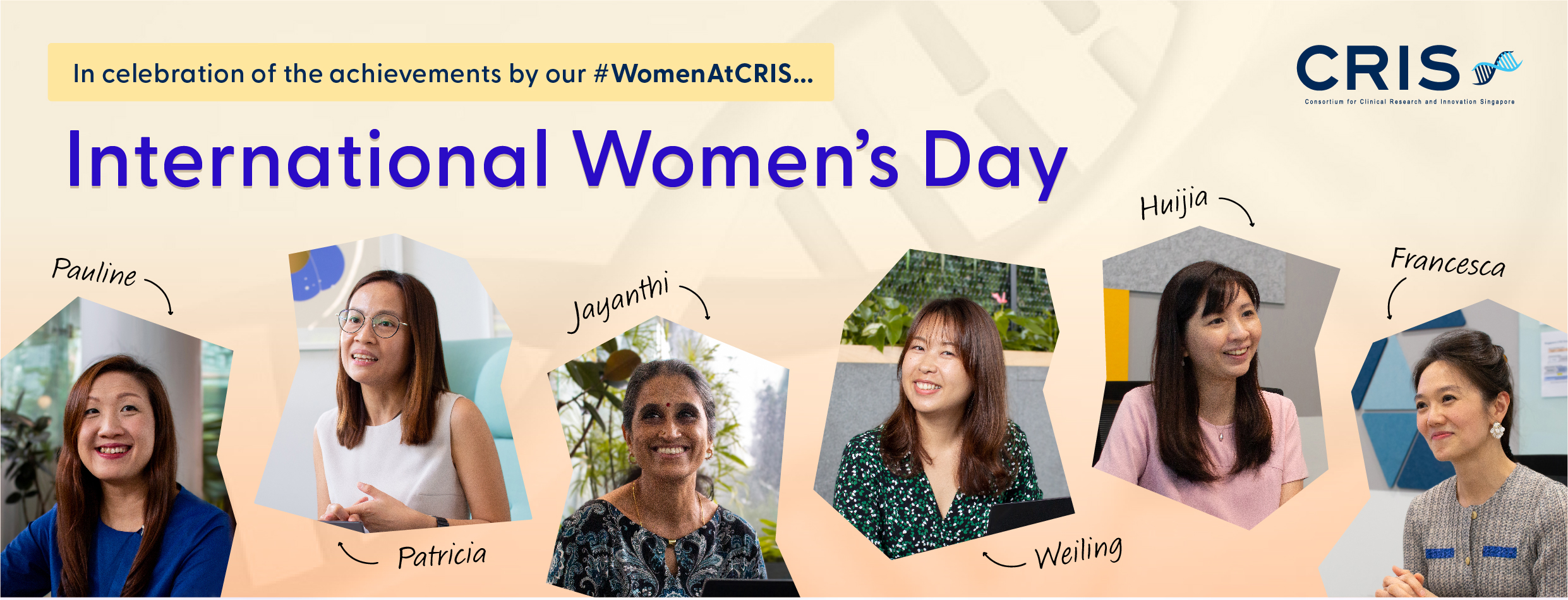
Click here to read more articles in this series.

